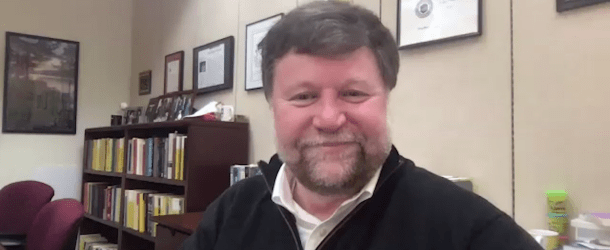PCQ Interviews Bob Sutor, VP of IBM Quantum Ecosystem: Quantum Computers Cannot Crack Covid Vaccine Gaps—Not Yet!

(PCQuest) PCQuest interviews Dr. Bob Sutor, Vice President, IBM Quantum Ecosystem Development about the on-the-street reality of quantum computers.
Can you share more details on the significance of circuits and cloud in accelerating Quantum Computing (QC)’s progress?
Sutor: Quantum computing on the cloud is not new. We are now in our fifth year of providing it with the largest ecosystem, and development based on the community-driven open source Qiskit platform. IBM put the first quantum computing device, open to the public, on the cloud in 2016. IBM was also the first to offer cloud-based commercial universal quantum computing systems as part of the IBM Q Network initiative, beginning in 2017. Today, we have 18 quantum systems available on the IBM Cloud. Our 240,000+ registered users, including those in the 100+ IBM Q Network organizations have run hundreds of billions of circuits on these systems, leading to more than 200 published research papers, and numerous industry case studies—all with the goal of developing practical quantum applications.
If you were to explain the concept of a Quantum Computer from your lens, how would you describe it?
Sutor: I start with the observation that all computing systems—quantum computers along with today’s classical computers such as phones, laptops, and supercomputers—operate on the ability to store and manipulate information. Classical computers manipulate individual bits, which store information as 0s and 1s. These bits can represent numbers, text, arbitrary data, and even what to draw on a screen.
Quantum computers, alternatively, use the physical phenomena of nature’s quantum mechanics to represent and manipulate information. Here we have quantum bits, or qubits. Unlike a bit, which has to be a 0 or a 1, a qubit can hold two pieces of information and so, in some sense, has two dimensions in which to operate. This is called superposition. The magic happens when we start using more qubits. For every extra qubit and using a fascinating property called entanglement, we double the information available for use. For example, just 50 qubits could represent more than one quadrillion compute states, simultaneously.
When can we see solid QC applications in the real world—how much has been done, could be done, with extreme projects like the Covid vaccine?
Sutor: Quantum computers today cannot help develop a vaccine for COVID-19 since they are simply not powerful enough yet. Let me make a stronger statement: if you see claims of quantum computing helping COVID-19 research, those claims are pure marketing hype.
























